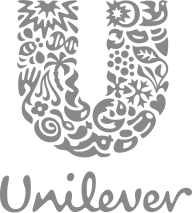Dr. Cassie Mogilner Holmes, Ph.D.
Award-winning UCLA professor researching and teaching happiness and the role of time
Research Expertise
About
Publications
Nonprofits Are Seen as Warm and For-Profits as Competent: Firm Stereotypes Matter
Journal of Consumer Research / Aug 01, 2010
Aaker, J., Vohs, K. D., & Mogilner, C. (2010). Nonprofits Are Seen as Warm and For-Profits as Competent: Firm Stereotypes Matter. Journal of Consumer Research, 37(2), 224–237. https://doi.org/10.1086/651566
The Mere Categorization Effect: How the Presence of Categories Increases Choosers' Perceptions of Assortment Variety and Outcome Satisfaction
Journal of Consumer Research / Aug 01, 2008
Mogilner, C., Rudnick, T., & Iyengar, S. S. (2008). The Mere Categorization Effect: How the Presence of Categories Increases Choosers’ Perceptions of Assortment Variety and Outcome Satisfaction. Journal of Consumer Research, 35(2), 202–215. https://doi.org/10.1086/588698
Happiness from Ordinary and Extraordinary Experiences
Journal of Consumer Research / Dec 13, 2013
Bhattacharjee, A., & Mogilner, C. (2013). Happiness from Ordinary and Extraordinary Experiences. Journal of Consumer Research, 41(1), 1–17. https://doi.org/10.1086/674724
How Happiness Affects Choice
Journal of Consumer Research / Dec 13, 2011
Mogilner, C., Aaker, J., & Kamvar, S. D. (2011). How Happiness Affects Choice. Journal of Consumer Research, 39(2), 429–443. https://doi.org/10.1086/663774
The Pursuit of Happiness
Psychological Science / Aug 23, 2010
Mogilner, C. (2010). The Pursuit of Happiness: Time, Money, and Social Connection. Psychological Science, 21(9), 1348–1354. https://doi.org/10.1177/0956797610380696
“The Time vs. Money Effect”: Shifting Product Attitudes and Decisions through Personal Connection
Journal of Consumer Research / Aug 01, 2009
Mogilner, C., & Aaker, J. (2009). “The Time vs. Money Effect”: Shifting Product Attitudes and Decisions through Personal Connection. Journal of Consumer Research, 36(2), 277–291. https://doi.org/10.1086/597161
The Shifting Meaning of Happiness
Social Psychological and Personality Science / Dec 20, 2010
Mogilner, C., Kamvar, S. D., & Aaker, J. (2010). The Shifting Meaning of Happiness. Social Psychological and Personality Science, 2(4), 395–402. https://doi.org/10.1177/1948550610393987
Time Will Tell: The Distant Appeal of Promotion and Imminent Appeal of Prevention: Table 1
Journal of Consumer Research / Feb 01, 2008
Mogilner, C., Aaker, J. L., & Pennington, G. L. (2008). Time Will Tell: The Distant Appeal of Promotion and Imminent Appeal of Prevention: Table 1. Journal of Consumer Research, 34(5), 670–681. https://doi.org/10.1086/521901
Time, Money, and Morality
Psychological Science / Dec 06, 2013
Gino, F., & Mogilner, C. (2013). Time, Money, and Morality. Psychological Science, 25(2), 414–421. https://doi.org/10.1177/0956797613506438
If money does not make you happy, consider time
Journal of Consumer Psychology / Mar 15, 2011
Aaker, J. L., Rudd, M., & Mogilner, C. (2011). If money does not make you happy, consider time. Journal of Consumer Psychology, 21(2), 126–130. Portico. https://doi.org/10.1016/j.jcps.2011.01.004
Experiential Gifts Foster Stronger Social Relationships Than Material Gifts
Journal of Consumer Research / Dec 11, 2016
Chan, C., & Mogilner, C. (2016). Experiential Gifts Foster Stronger Social Relationships Than Material Gifts. Journal of Consumer Research, 43(6), 913–931. https://doi.org/10.1093/jcr/ucw067
Giving Time Gives You Time
Psychological Science / Sep 12, 2012
Mogilner, C., Chance, Z., & Norton, M. I. (2012). Giving Time Gives You Time. Psychological Science, 23(10), 1233–1238. https://doi.org/10.1177/0956797612442551
Does Variety Among Activities Increase Happiness?
Journal of Consumer Research / May 10, 2016
Etkin, J., & Mogilner, C. (2016). Does Variety Among Activities Increase Happiness? Journal of Consumer Research, 43(2), 210–229. https://doi.org/10.1093/jcr/ucw021
Prosocial spending and buying time: Money as a tool for increasing subjective well-being
Advances in Experimental Social Psychology / Jan 01, 2020
Dunn, E. W., Whillans, A. V., Norton, M. I., & Aknin, L. B. (2020). Prosocial spending and buying time: Money as a tool for increasing subjective well-being. In Advances in Experimental Social Psychology (pp. 67–126). Elsevier. https://doi.org/10.1016/bs.aesp.2019.09.001
People Rely Less on Consumer Reviews for Experiential than Material Purchases
Journal of Consumer Research / Sep 10, 2019
Dai, H., Chan, C., & Mogilner, C. (2019). People Rely Less on Consumer Reviews for Experiential than Material Purchases. Journal of Consumer Research, 46(6), 1052–1075. https://doi.org/10.1093/jcr/ucz042
People Who Choose Time Over Money Are Happier
Social Psychological and Personality Science / Jun 23, 2016
Hershfield, H. E., Mogilner, C., & Barnea, U. (2016). People Who Choose Time Over Money Are Happier. Social Psychological and Personality Science, 7(7), 697–706. https://doi.org/10.1177/1948550616649239
Having too little or too much time is linked to lower subjective well-being.
Journal of Personality and Social Psychology / Oct 01, 2021
Sharif, M. A., Mogilner, C., & Hershfield, H. E. (2021). Having too little or too much time is linked to lower subjective well-being. Journal of Personality and Social Psychology, 121(4), 933–947. https://doi.org/10.1037/pspp0000391
Eternal Quest for the Best: Sequential (vs. Simultaneous) Option Presentation Undermines Choice Commitment
Journal of Consumer Research / Apr 01, 2013
Mogilner, C., Shiv, B., & Iyengar, S. S. (2013). Eternal Quest for the Best: Sequential (vs. Simultaneous) Option Presentation Undermines Choice Commitment. Journal of Consumer Research, 39(6), 1300–1312. https://doi.org/10.1086/668534
Time, money, and happiness
Current Opinion in Psychology / Aug 01, 2016
Mogilner, C., & Norton, M. I. (2016). Time, money, and happiness. Current Opinion in Psychology, 10, 12–16. https://doi.org/10.1016/j.copsyc.2015.10.018
Reinforcement versus balance response in sequential choice
Marketing Letters / Jun 03, 2008
Huber, J., Goldsmith, K., & Mogilner, C. (2008). Reinforcement versus balance response in sequential choice. Marketing Letters, 19(3–4), 229–239. https://doi.org/10.1007/s11002-008-9042-5
Rethinking time: Implications for well‐being
Consumer Psychology Review / Dec 25, 2017
Mogilner, C., Hershfield, H. E., & Aaker, J. (2017). Rethinking time: Implications for well‐being. Consumer Psychology Review, 1(1), 41–53. Portico. https://doi.org/10.1002/arcp.1003
It’s time for happiness
Current Opinion in Psychology / Apr 01, 2019
Mogilner, C. (2019). It’s time for happiness. Current Opinion in Psychology, 26, 80–84. https://doi.org/10.1016/j.copsyc.2018.07.002
Preferences for experienced versus remembered happiness
The Journal of Positive Psychology / Apr 05, 2018
Mogilner, C., & Norton, M. I. (2018). Preferences for experienced versus remembered happiness. The Journal of Positive Psychology, 14(2), 244–251. https://doi.org/10.1080/17439760.2018.1460688
Happiness From Treating the Weekend Like a Vacation
Social Psychological and Personality Science / Jun 15, 2020
West, C., Mogilner, C., & DeVoe, S. E. (2020). Happiness From Treating the Weekend Like a Vacation. Social Psychological and Personality Science, 12(3), 346–356. https://doi.org/10.1177/1948550620916080
Know what I want but can I find it?: Examining the dynamic relationship between stated and revealed preferences
PsycEXTRA Dataset / Jan 01, 2005
Iyengar, S. S., Simonson, I., Fisman, R., & Mogilner, C. (2005). Know what I want but can I find it?: Examining the dynamic relationship between stated and revealed preferences: (633942013-142) [dataset]. In PsycEXTRA Dataset. American Psychological Association (APA). https://doi.org/10.1037/e633942013-142
Consumer Happiness and Well-Being
The Cambridge Handbook of Consumer Psychology / Sep 09, 2015
Mogilner, C., & Norton, M. I. (2015). Consumer Happiness and Well-Being. In The Cambridge Handbook of Consumer Psychology (pp. 5–28). Cambridge University Press. https://doi.org/10.1017/cbo9781107706552.001
These 6 Things: How to Focus Your Teaching on What Matters Most
Jan 01, 2019
Stuart, D. (2019). These 6 Things: How to Focus Your Teaching on What Matters Most. Corwin. https://doi.org/10.4135/9781506391052
Editorial overview: Time
Current Opinion in Psychology / Apr 01, 2019
Mogilner, C., & DeVoe, S. E. (2019). Editorial overview: Time. Current Opinion in Psychology, 26, iv–vi. https://doi.org/10.1016/j.copsyc.2019.03.012
A broad view of time predicts greater subjective well-being
Personality and Individual Differences / Jul 01, 2024
Bergstrom, T., Reiff, J., Mogilner, C., & Hershfield, H. (2024). A broad view of time predicts greater subjective well-being. Personality and Individual Differences, 225, 112663. https://doi.org/10.1016/j.paid.2024.112663
Time Poverty
Elgar Encyclopedia of Consumer Behavior / Jun 13, 2024
Trupia, M. G., Engeler, I., & Holmes, C. M. (2024). Time Poverty. In Elgar Encyclopedia of Consumer Behavior (pp. 301–304). Edward Elgar Publishing. https://doi.org/10.4337/9781803926278.ch92
Shifting product attitudes: The time > money effect
PsycEXTRA Dataset / Jan 01, 2009
Mogilner, C., & Aaker, J. (2009). Shifting product attitudes: The time > money effect: (621092012-097) [dataset]. In PsycEXTRA Dataset. American Psychological Association (APA). https://doi.org/10.1037/e621092012-097
Time Poverty
Jun 16, 2024
Trupia, M. G., Engeler, I., & Holmes, C. M. (2024). Time Poverty. https://doi.org/10.31234/osf.io/zr6ny
Financial resources impact the relationship between meaning and happiness.
Emotion / Mar 01, 2023
Catapano, R., Quoidbach, J., Mogilner, C., & Aaker, J. L. (2023). Financial resources impact the relationship between meaning and happiness. Emotion, 23(2), 504–511. https://doi.org/10.1037/emo0001090
Pooling finances and relationship satisfaction.
Journal of Personality and Social Psychology / Dec 01, 2022
Gladstone, J. J., Garbinsky, E. N., & Mogilner, C. (2022). Pooling finances and relationship satisfaction. Journal of Personality and Social Psychology, 123(6), 1293–1314. https://doi.org/10.1037/pspi0000388
Consumer debt and satisfaction in life.
Journal of Experimental Psychology: Applied / Mar 01, 2021
Greenberg, A. E., & Mogilner, C. (2021). Consumer debt and satisfaction in life. Journal of Experimental Psychology: Applied, 27(1), 57–68. https://doi.org/10.1037/xap0000276
Education
PhD, Marketing / June, 2009
Columbia University
B.A., Psychology / May, 2002
Experience
Wharton, University of Pennsylvania
Associate Professor / July, 2015 — July, 2016
Researcher of Happiness and Time; Taught Brand Management to MBAs
Assistant Professor / July, 2009 — July, 2015
Researcher of Happiness and Time; Taught Brand Management to MBAs
UCLA Anderson School of Management
Professor / July, 2020 — Present
Bud Knapp Chaired Professor of Marketing and Behavioral Decision Making; Researcher of Happiness and Time; Teaches "Applying the Science of Happiness to Life Design" to MBAs and Executive MBAs
Associate Professor / April, 2016 — July, 2020
Donnalisa ’86 and Bill Barnum Endowed Term Chair in Management; Researcher of Happiness and Time; Teaches "Applying the Science of Happiness to Life Design" to MBAs and Executive MBAs
Gallery Books, Simon & Schuster
Author of HAPPIER HOUR: HOW TO BEAT DISTRACTION, EXPAND YOUR TIME, AND FOCUS ON WHAT MATTERS MOST / September, 2022 — Present
TEDX Manhattan Beach
Speaker: "You can be happy without changing your life" / November, 2023 — March, 2024
Links & Social Media
Join Cassie on NotedSource!
Join Now
At NotedSource, we believe that professors, post-docs, scientists and other researchers have deep, untapped knowledge and expertise that can be leveraged to drive innovation within companies. NotedSource is committed to bridging the gap between academia and industry by providing a platform for collaboration with industry and networking with other researchers.
For industry, NotedSource identifies the right academic experts in 24 hours to help organizations build and grow. With a platform of thousands of knowledgeable PhDs, scientists, and industry experts, NotedSource makes connecting and collaborating easy.
For academic researchers such as professors, post-docs, and Ph.D.s, NotedSource provides tools to discover and connect to your colleagues with messaging and news feeds, in addition to the opportunity to be paid for your collaboration with vetted partners.
Expert Institutions





Proudly trusted by





